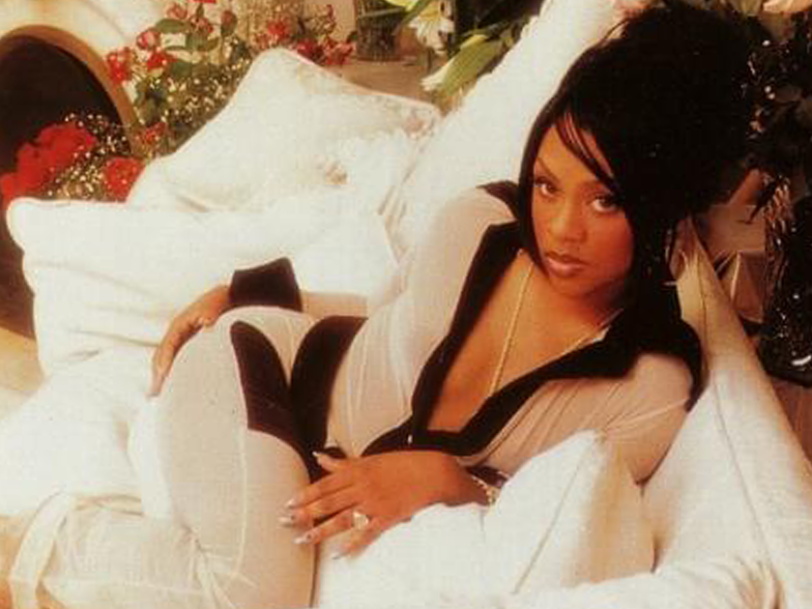Lil’ Kim’s 1996 debut album, Hard Core, completely redefined hip-hop and women’s role within it. There had never been an album before it that so explosively combined hardcore sex, hardcore rap and the diamond-hard core of Kim’s persona: she was fantasy and nightmare all at once. “I talk about the realness, about what’s going on in today’s society,” Kim told MTV in 1996. “It’s what separates me from other rappers.”
Listen to ‘Hard Core’ here.
The backstory: “I’m taking all that and I’m flipping it”
Lil’ Kim – born Kimberly Jones – had a traumatic journey to success. Parental conflict meant she was uprooted and insecure from a very young age. “There was a time when my mother and I were living out of the trunk of her car,” Kim once said. “We slept in the back seat.” After her parents divorced, Kim lived with her father; but the pair argued constantly, Kim feeling that her father was persistently critical of her. At one point, she stabbed him in the shoulder with a pair of scissors. Kim left home at 14, with nowhere else to go.
Homeless, she began running drugs and sleeping where she could, and started getting involved in relationships with men, many of which were emotionally abusive, as she revealed in 1996: “When I was younger, I’ve had a lot of relationships where men used to tell me that I wasn’t all that, that I was ugly, and without them I would never be nothing,” she said. Even four years later, following her huge success with Hard Core and its follow-up, The Notorious K.I.M., those scars ran deep. “It’s always been men putting me down, just like my dad,” she said in 2000. “To this day, when someone says I’m cute, I can’t see it. I don’t see it no matter what anybody says.”
Things changed when Kim was 19, and she met Christopher Wallace – The Notorious B.I.G. – in Brooklyn, New York City. She rapped for him, and he liked what he heard. Biggie was building a group at the time, Junior M.A.F.I.A., and Kim joined it, adopting the name Lil’ Kim. Biggie and Kim also began a relationship, whose tumultuous nature underpinned her raps and influenced her worldview.
As she transformed from Kimberly into Lil’ Kim, she wasn’t afraid of using her difficult past in her music. “Now that I’m older, I’m taking all that and I’m flipping it,” she said in 1996, at the time of Hard Core’s release. “Look, I am somebody and I don’t need you to do this. I’m doing it myself, and now’s the time to build up my self-esteem.”
The launchpad: “Biggie heard her voice and said, ‘This is it’”
Junior M.A.F.I.A. (standing for Masters At Finding Intelligent Attitudes) were young, all under 20, when they formed; Biggie acted as “godfather” to the group, rather than being a member himself. On their debut album, 1995’s Conspiracy, Kim’s performances were standouts. It was Back Stabbers in particular that pointed to Hard Core and Kim’s developing style. One of the album’s producers, Lance “Un” Riviera, has remembered the importance of that track: “When we were making the Junior M.A.F.I.A. album and she did Back Stabbers, [Biggie] heard the tone in her voice and said, ‘This is it.’”




